- Home
- Charles de Lint
The Wind in His Heart
The Wind in His Heart Read online
Praise for Charles de Lint
Beautiful, elegant, and remarkably kind, this is the work of a storyteller at the peak of his abilities. With de Lint, there's no need to say, “I can’t wait to see what he does next.” What he does now is always enough to take my breath away.
—Seanan McGuire, author of the October Daye series and other novels
* * *
Charles' new book filled me with joy! From the first line to the last, I was completely involved. A book about those "outside" who think they want to get "in," there are good lessons to be learned—painlessly—from beginning to end.
—Janis Ian, songwriter & musician
* * *
With this gently rolling, lyrical composition of a book, the godfather of urban fantasy flows back to where he’s most needed. If there's one thing today's world can gain from literature, surely it's de Lint's signature sense of unsullied wonder and devotion to the best within us.
—Melissa F. Olson, author of the Scarlett Bernard series and other novels
* * *
As a struggling unpublished novelist, I read Charles de Lint and found the template for the kind of stories I wanted to tell, ones that brought magic and folklore into the modern world. After fifteen novels of my own, I'm still both humbled and enthralled by the ease with which he draws the reader into his stories, because now I know just how hard it is. The Wind in His Heart is tough, tender, grim, light on its feet, magical, and brilliant: in other words, a typical de Lint masterpiece, once again setting a high bar for those of us who follow.
—Alex Bledsoe, author of the Tufa series and other novels
* * *
Oh what a sweet, wonderful ride that was! I was enthralled. I didn't leave my house all weekend; it was glorious. It was throwback CdL, a vast, shifting landscape of story woven upon story, just what I love. What a love letter to the desert.
—Lizz Huerta, author, winner of the Lumina fiction award
* * *
Splendid and so very healing!
—Charles Vess, artist, winner of the World Fantasy Award
The Wind in His Heart
Charles de Lint
Contents
The Wind in His Heart
The Throwaway Child
1. Thomas Corn Eyes
2. Steve Cole
3. Sadie Higgins
4. Thomas
5. Steve
6. Sadie
7. Thomas
8. Sadie
9. Thomas
10. Leah Hardin
11. Thomas
The Death of Derek Two Trees
12. Steve
13. Sadie
14. Leah
15. Steve
16. Thomas
17. Steve
18. Thomas
19. Sadie
20. Steve
21. Leah
22. Steve
23. Thomas
24. Sadie
25. Steve
26. Leah
27. Thomas
28. Sadie
29. Steve
30. Leah
Over Yonder
31. Thomas
32. Steve
33. Leah
34. Jerry Five Hawks
35. Sadie
36. Thomas
37. Leah
38. Thomas
39. Jerry
40. Abigail White Horse
41. Thomas
42. Steve
43. Sadie
44. Thomas
45. Leah
46. Jerry
47. Ruby
Raven Wings
48. Steve
49. Leah
50. Sadie
51. Thomas
52. Steve
53. Sadie
54. Marisa Grant
55. Steve
56. Thomas
57. Sadie
58. Steve
59. Thomas
60. Marisa
61. Sadie
62. Steve
63. Leah
64. Sadie
65. Thomas
66. Steve
67. Leah
Showdown at the White Horse Medicine Wheel
68. Steve
69. Leah
70. Thomas
71. Steve
72. Leah
73. Steve
74. Leah
75. Steve
After
76. Leah
77. Sadie
78. Ruby
79. Steve
80. Leah
81. Sadie
82. Thomas
Mailing list
Afterword
About the Author
Other Books by Charles de Lint
The Wind in His Heart
by
Charles de Lint
TRISKELL PRESS
P.O. Box 9480
Ottawa, ON
Canada K1G 3V2
www.triskellpress.com
* * *
Copyright © 2017 Charles de Lint
Cover design by MaryAnn Harris.
* * *
eISBN 978-0-920623-76-3
* * *
The quote from Steve Earle’s “Over Yonder (Jonathan's Song)” first appeared on his Transcendental Blues album (E-Squared Records, 2000). Used by permission of the artist. For more information on Steve Earle go to www.steveearle.com
* * *
Also thanks to Sandra Kasturi for the use of the lines from her poem “Speaking Crow,” which originally appeared in Come Late to the Love of Birds (Tightrope Books, November 2012). Used by permission of the author.
* * *
All rights reserved. This book or any portion thereof may not be reproduced or used in any manner whatsoever without the express written permission of the author or publisher except for the use of brief quotations in critical articles or reviews.
* * *
This is a work of fiction. Names, places, businesses, characters and incidents are either the product of the author’s imagination or are used in a fictitious manner. Any resemblance to actual persons living or dead, actual events or locales is purely coincidental.
for MaryAnn
and our Johnny boy.
Nearly everything that matters is a challenge,
and everything matters.
—Rilke
* * *
Some things have to be believed to be seen.
—Madeleine L’Engle
* * *
I am going over yonder
Where no ghost can follow me
There's another place beyond here
Where I'll be free I believe
—Steve Earle, “Over Yonder (Jonathan's Song)”
The Throwaway Child
1
Thomas Corn Eyes
Those days, the prickly pear boys hung around the Little Tree Trading Post during the day, drowsing in the desert heat mostly, but still seeing and hearing everything that took place between the old adobe building and the two-lane road that ran up into the rez from the highway. They weren’t seen, themselves—or at least not as themselves. Nobody gave a second glance to the small grove of cacti crowded up against the base of one saguaro or another. Nobody even noticed that they were rarely in exactly the same place from one morning to the next.
But Thomas Corn Eyes did. He worked at the trading post and noted their different position every morning when he arrived for work.
No one in Thomas’s family had ever had eyes the colour of corn, either the green leaves of the tall midsummer growths or the yellow of the kernels. They got their name back when the federal government insisted a surname was required for everybody, without exception. On the rez they had a lot of fun coming up with nam
es the whites thought were pregnant with traditional meaning. Johnny Squash Mother. Agnes White Deer. Robert Twin Dogs.
No, Thomas had brown eyes, the same as everyone else in the tribe. The difference was he could also see a little deeper into the invisible world of the spirits than most people could, but that wasn’t something he would ever talk about. He didn’t want to risk gaining the attention of the tribal shaman, Ramon Morago. For the past decade Morago had been searching for an apprentice, and working with him was the last thing Thomas wanted.
It wasn’t that he was ashamed of his Kikimi heritage, or even that he didn’t consider himself a spiritual person. But he was only eighteen and he didn’t want to spend the rest of his life living on the rez, organizing sweats. He didn’t want to be making medicine bags for the aunties, taking Reuben’s dog boys out on their spirit quests, or any of the hundred-and-one other things a shaman did.
But no matter what he wanted or didn’t, he still saw into the spiritworld, and the spirits knew it.
* * *
Thomas was studying the cacti through the windows, trying to catch one of the prickly pear moving, when the long black Caddy pulled into the parking lot. It was a ’56 or ’57, a real classic and in perfect shape, the glossy black paint job so deep it seemed to swallow light. He couldn’t see a speck of dust on it, which, considering the roads around here, had to be a bit of a miracle. The tinted windows didn’t let him see the driver, but man, you’d have to feel like the king of the world behind the wheel of a car like that.
He straightened up behind the counter when the driver’s door opened and a striking older woman stepped out. He wasn’t sure what made him think she was older. Her features were youthful and she moved with the easy grace of a dancer. She was tall and colt-thin with a wave of thick black hair that was almost as glossy as the car’s paint job. He figured her for a model, maybe even an actress, but neither explained what she was doing driving herself out here in the sticks except that she looked Native—not Kikimi, but definitely Indian. Then he caught a glimpse of her aura—the ghostly shape of a raven’s head on her shoulders—and he figured she was going into the rez to meet with Morago or the Aunts.
She glanced in the direction of the trading post and caught him staring. Thomas looked away, but not before he saw her smile.
So much for maintaining his cool.
When she came inside she should have seemed out of place in her tight designer jeans, strapped sandals, and the midriff-baring T-shirt that probably cost more than everything he had in his closet put together. Her skin was the hue of the shadows in a red rock canyon and her eyes so dark they seemed all pupil. The eyes, he decided, were what had made him think she was older.
The trading post was like an old general store, the shelves stuffed with everything from groceries and toiletries to clothing and tools, with a cast iron stove up against one adobe wall around which Reuben’s friends would sit in the afternoon to gossip and drink coffee or tea. But oddly enough, the woman appeared to fit her present surroundings as comfortably as she might a runway or some fancy restaurant. Odder still, her raven aura didn’t rest passively on her shoulders. It looked around the trading post as though it had a mind of its own.
He’d never seen anything like that before. He wasn’t a stranger to the auras themselves—his awareness of them was an element of his being able to see into the spiritworld. Not everybody had an aura. It was only those with the closest ties to their ma’inawo blood. Those who carried an animal spirit as well as a human one inside them. But he’d never seen an aura that acted independently the way this one did.
“Ohla,” he said. “Welcome to the Painted Lands.”
The woman smiled and pointed to the cooler at the far end of the counter. “Do you have any bottled Coke in there?”
“Yes, ma’am.”
His response seemed to amuse her, and Thomas felt a flush creep up from under his shirt collar. To cover his embarrassment, he went over to the cooler. He took a bottle out of the icy water, wiped it down with a terrycloth towel, and popped the cap. Returning to his place behind the counter, he set it down in front of her.
“How much?” she asked.
“A dollar.”
Her perfectly shaped eyebrows went up.
Thomas shrugged. “People around here don’t have a lot of money. Reuben, my boss, doesn’t like to gouge them.”
She pulled a twenty-dollar bill out of the front pocket of her jeans and handed it to him. Thomas didn’t think there’d been room for even a bill in that pocket.
“Keep the change,” she said.
Do I really look like that much of a charity case? Thomas thought, but he only nodded and put the money in the till. A woman like her? She could afford to help out Reuben’s bottom line.
“And how much for a map?” she asked.
“Of the rez or the National Park?”
“I’m going to the casino.”
Of course she was.
“You’re on the wrong side of the rez,” he told her.
“There’s a right and a wrong side?”
“No. Though I guess that might depend on who you’re talking to. What I mean is, this isn’t the fancy side with the casino. That’s south of here, on the other side of the Vulture Ridge Trailhead.”
“The what?”
“That’s just the part of the National Park that divides the two sides of the rez. All you need to do is keep going south when you get to the trailhead. There’s plenty of signs, so you don’t need a map.”
He gave her directions that would take her back down Jacinta to Zahra Road where a south turn would take her straight to the casino. She barely seemed to be paying attention, but her raven aura fixed him with an unwavering gaze as he spoke. It was as if it was more than simply an aura and was memorizing his words for her as well as itself. Thomas focused on the woman’s face, trying to ignore the ghostly presence of the bird.
“Just remember,” he said, “that Zahra changes names at the crossroads and becomes Redondo Drive when it continues south.”
“I will. Thank you.”
He watched her start for the door, the head of the raven aura revolving so that it continued to face him. She paused just before stepping outside and turned back to look at him.
“You’ve been so helpful,” she said, “that I feel I should share some direction with you.”
Thomas had no idea what she was talking about.
“That’s okay,” he said. “I’m pretty sure I know where I am.”
“Are you?”
Thomas shrugged. “I’ve lived here all my life.”
“But do you know who you are?” she asked.
The raven aura cocked its head when she spoke. Thomas had really never seen anything like it before. He’d never seen a woman like the one at the door, either. She could as easily have stepped right out of the pages of a magazine, or from a movie screen, as from that long black Caddy she was driving.
“I don’t really think it matters who I am,” he said.
“That might be the saddest thing I’ve heard all day,” she told him.
That was because she didn’t live on this side of the rez, he thought, but all he did was give her another shrug.
“It should matter to you,” she added. “You should learn about yourself. Embrace all the aspects of who you are.”
Thomas couldn’t stop himself. “Says the woman in designer clothes on the way to the casino in a vintage Cadillac.”
Her dark gaze held his for a long moment.
“Not everything is what it appears to be on the surface,” she said.
Then the door was closing behind her.
He tracked her through the window as she returned to her car. She never looked back, but the raven aura watched him until the closing car door cut them both from view.
Well, that wasn’t weird.
He stood looking out the window long after the dust kicked up by her tires had settled.
2
Steve Cole
/>
I’m camped on a ridge overlooking Zahra Road, the highway that follows the foothills of the Hierro Maderas Mountains, when I hear the car. It’s been a perfect night. Crisp, cool air, with a moon close enough to full that it casts long shadows on the desert floor below. It’s the kind of night where you can imagine you’re the only person in the world. It’s just you and the desert. Sure, there are coyotes talking from time to time off in the distance. An owl hooting from the top of a saguaro this past hour or so. Mice scurrying about in the brush closer to hand. But no people. No hikers. Nobody joyriding on their ATVs. Not even any Kikimi whose land this is.

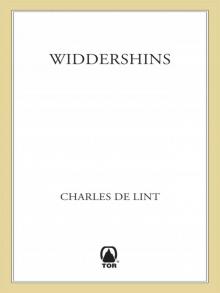 Widdershins
Widdershins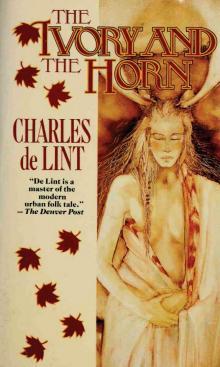 The Ivory and the Horn
The Ivory and the Horn Yarrow
Yarrow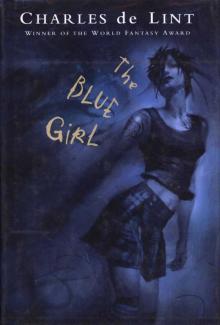 The Blue Girl
The Blue Girl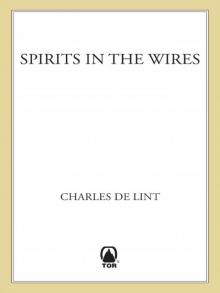 Spirits in the Wires
Spirits in the Wires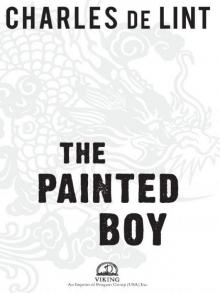 The Painted Boy
The Painted Boy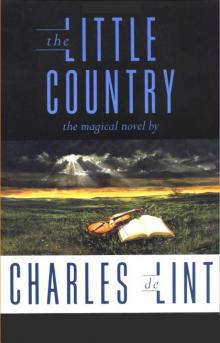 The Little Country
The Little Country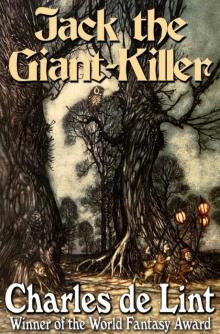 Jack of Kinrowan: Jack the Giant-Killer / Drink Down the Moon
Jack of Kinrowan: Jack the Giant-Killer / Drink Down the Moon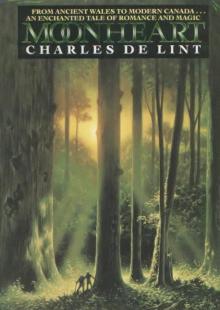 Moonheart
Moonheart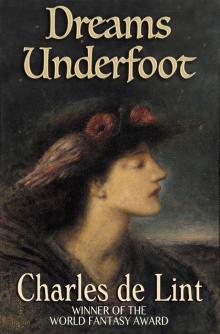 Dreams Underfoot
Dreams Underfoot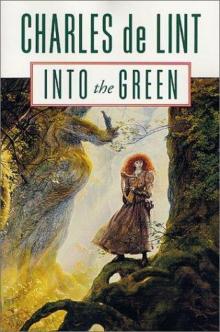 Into the Green
Into the Green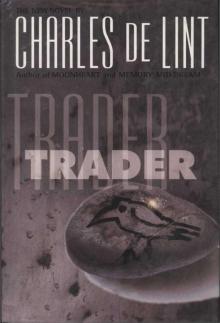 Trader
Trader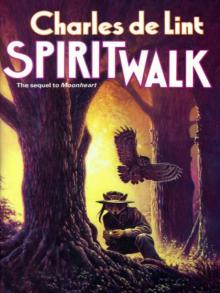 Spiritwalk
Spiritwalk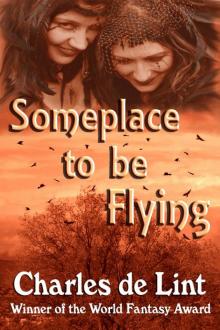 Someplace to Be Flying
Someplace to Be Flying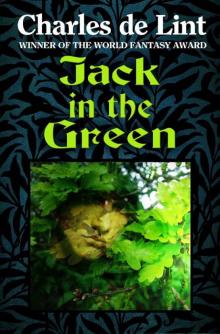 Jack in the Green
Jack in the Green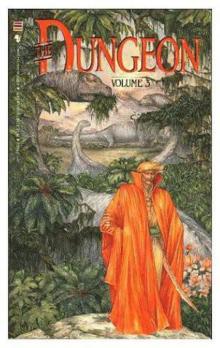 The Valley of Thunder
The Valley of Thunder Out of This World
Out of This World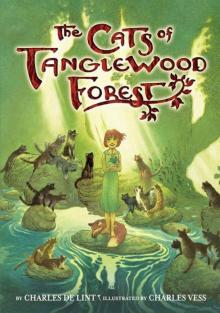 The Cats of Tanglewood Forest
The Cats of Tanglewood Forest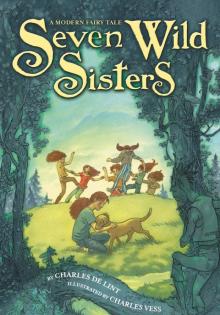 Seven Wild Sisters
Seven Wild Sisters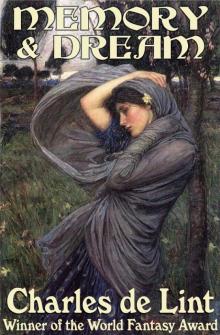 Memory and Dream
Memory and Dream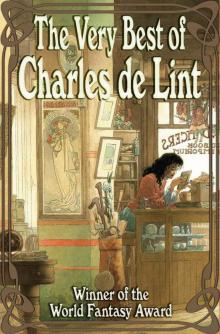 The Very Best of Charles De Lint
The Very Best of Charles De Lint Under My Skin
Under My Skin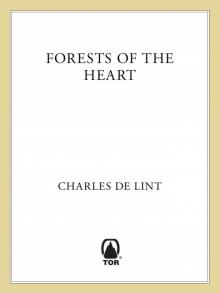 Forests of the Heart
Forests of the Heart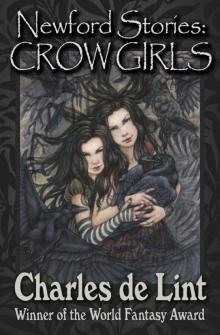 The Newford Stories
The Newford Stories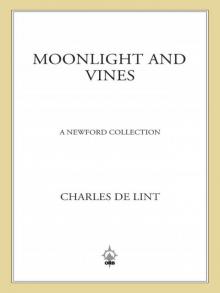 Moonlight and Vines
Moonlight and Vines Angel of Darkness
Angel of Darkness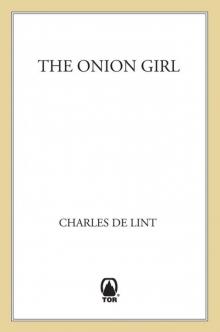 The Onion Girl
The Onion Girl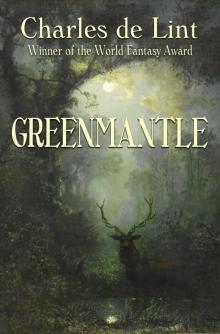 Greenmantle
Greenmantle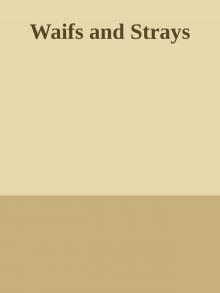 Waifs And Strays
Waifs And Strays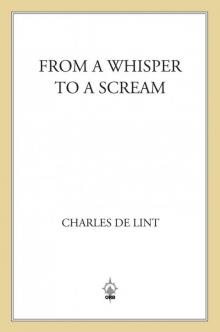 From a Whisper to a Scream
From a Whisper to a Scream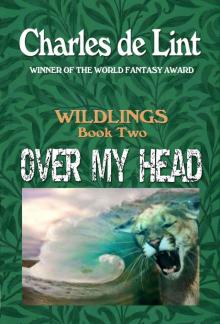 Over My Head
Over My Head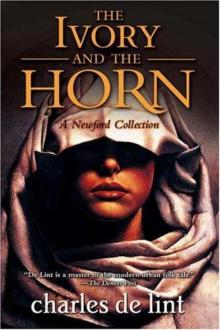 The Ivory and the Horn n-6
The Ivory and the Horn n-6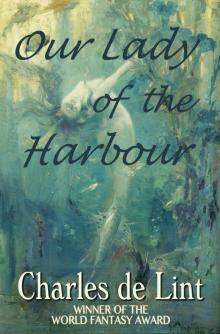 Our Lady of the Harbour
Our Lady of the Harbour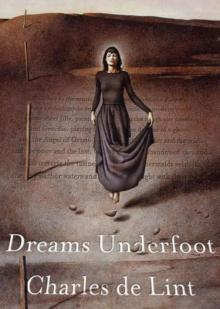 Dreams Underfoot n-1
Dreams Underfoot n-1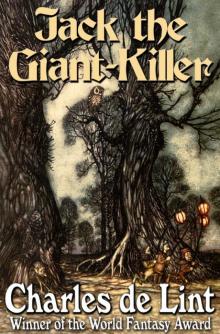 Jack the Giant-Killer (Jack of Kinrowan Book 1)
Jack the Giant-Killer (Jack of Kinrowan Book 1)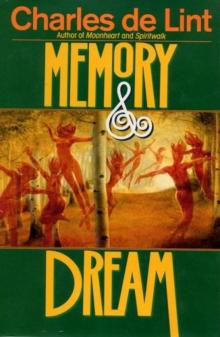 Memory and Dream n-5
Memory and Dream n-5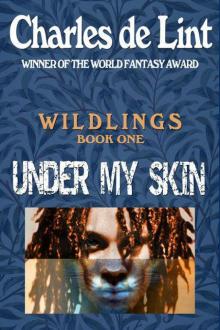 Under My Skin (Wildlings)
Under My Skin (Wildlings)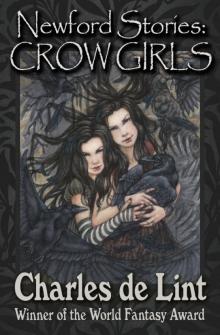 Newford Stories
Newford Stories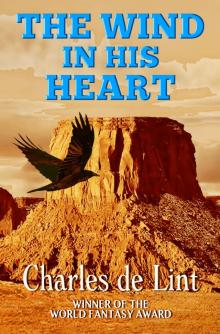 The Wind in His Heart
The Wind in His Heart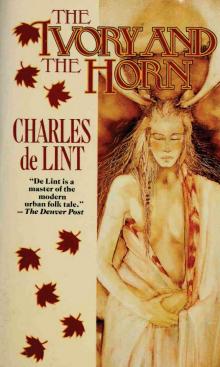 Ivory and the Horn
Ivory and the Horn